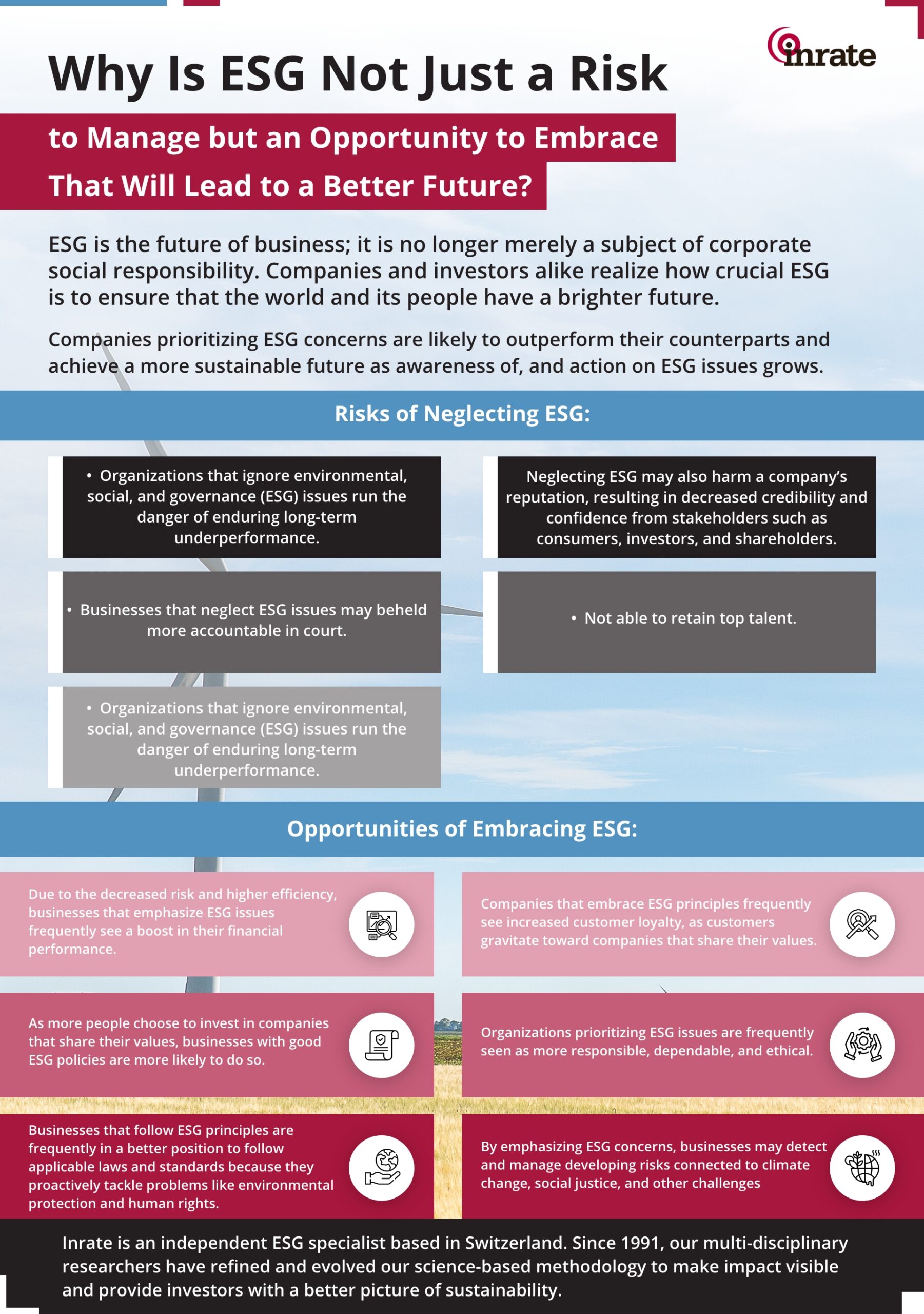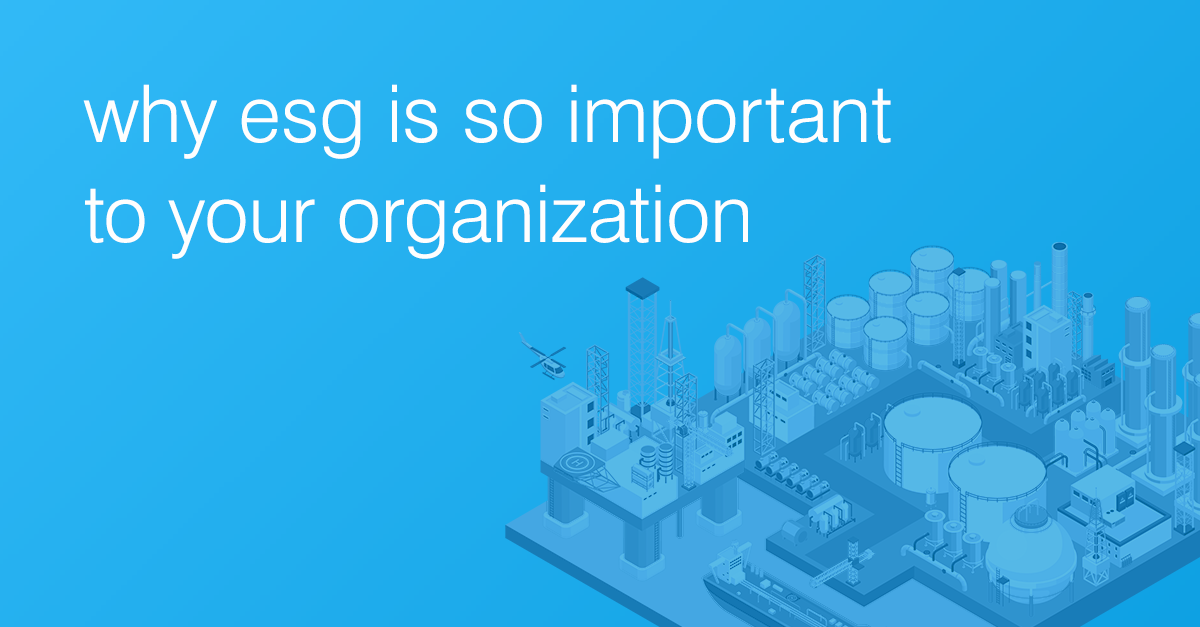Antwort Why is ESG so important? Weitere Antworten – Why is ESG more important
Lack of ESG can hurt a company's value
Investors now understand that environmental, social, and governance criteria go beyond ethical concerns. With robust ESG criteria, companies can avoid practices that involve risk.ESG stands for “Environmental, Social and Governance.” ESG can be described as a set of practices (policies, procedures, metrics, etc.) that organisations implement to limit negative impact or enhance positive impact on the environment, society, and governance bodies.ESG factors have a potential material financial impact on organizations short- and long- term value, so are increasingly important as companies emphasise equitable and inclusive long-term value creation.
Why is ESG strategically important : Here are some key reasons why incorporating ESG into your business strategy is important: Risk management: ESG factors help businesses identify and manage risks that can impact their operations, reputation, and long-term viability.
Why is ESG controversial
Critics portrayed ESG investing as primarily motivated by political concerns and a potential drag on returns. Additionally, some critics have raised concerns about the complexity and reliability of ESG metrics.
What is ESG in simple words : ESG means using Environmental, Social and Governance factors to assess the sustainability of companies and countries. These three factors are seen as best embodying the three major challenges facing corporations and wider society, now encompassing climate change, human rights and adherence to laws.
While all three factors are important, the 'E' in ESG – Environmental – is perhaps the most critical, especially in light of the growing concerns around climate change and environmental issues. Common ways to address this issue is to lower greenhouse gas emissions and reduce carbon footprint.
ESG factors are made up of three different categories: environmental responsibility, social responsibility, and governance transparency. It serves as a guidepost for businesses to ensure they are doing right by their employees, customers, as well as society at large.
Why is ESG a competitive advantage
This enhanced brand loyalty translates into a competitive advantage, as customers are more inclined to choose and stick with brands that align with their values. From an investment perspective, strong ESG practices make a company more attractive to a growing pool of socially responsible investors.Risk Mitigation: ESG integration can help mitigate various risks. Companies that manage their environmental impact, adhere to social responsibilities, and maintain strong governance practices are less exposed to reputational and operational risks.Critics say ESG investments allocate money based on political agendas, such as a drive against climate change, rather than on earning the best returns for savers.
In December 2022, Florida announced that it was taking $2 billion out of the management of BlackRock, the world's largest asset manager (and biggest lightning rod for ESG criticism). This was the largest such divestment thus far. These attacks have been coordinated.
What are the 3 pillars of ESG : The three pillars of ESG are:
- Environmental – this has to do with an organisation's impact on the planet.
- Social – this has to do with the impact an organisation has on people, including staff and customers and the community.
- Governance – this has to do with how an organisation is governed. Is it governed transparently
How does ESG create value : Social and governance initiatives can increase value, by enhancing reputation and reducing risk, for example (Exhibit 1). There is also compelling evidence that companies that undertake serious ESG efforts and enlist employees in these efforts can increase employee engagement, raise productivity, and reduce turnover.
Does ESG actually matter
According to a study by MSCI, companies with high ESG ratings had better financial performance than those with lower ESG ratings, with a 35% higher return on equity and a 20% higher valuation.
One of the biggest criticisms of ESG is that it perpetuates what it was partly designed to stop – greenwashing.Pros and cons of ESG investing
| Pros | Cons |
|---|---|
| Can help investors diversify their portfolio | ESG funds may carry higher than average expense ratios |
| May reduce portfolio risk | ESG investing is still a fairly new concept and there isn't a ton of reporting on performance |
Why ESG is better than CSR : CSR focuses on corporate volunteering, lowering carbon footprint, and engaging with charities. ESG provides a more quantitative measure of sustainability. ESG considers environmental, social, and governance factors. ESG improves the valuation of the business.








